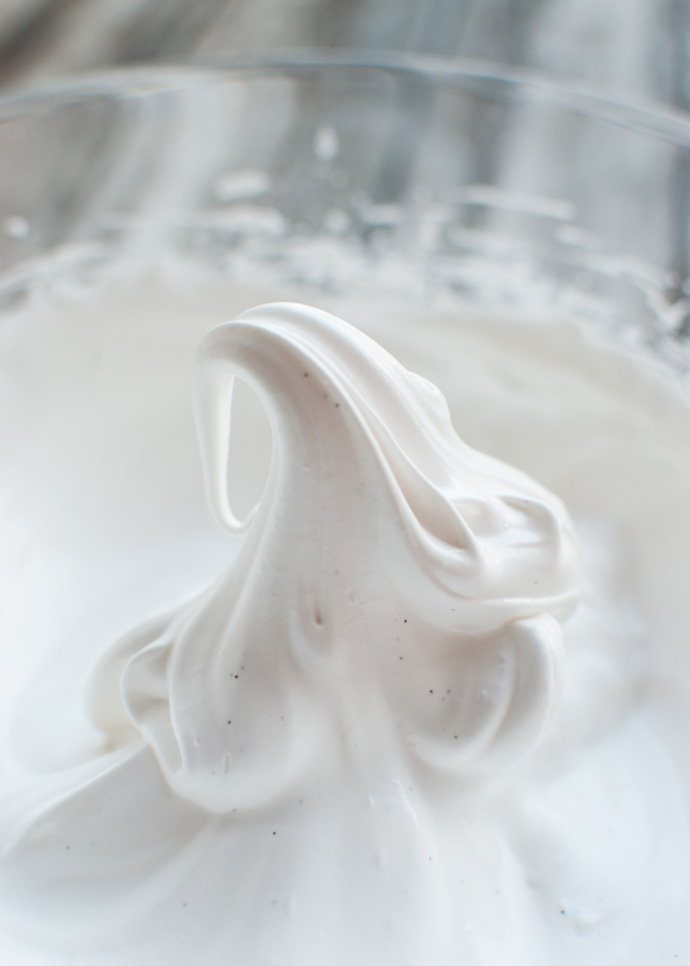 As you may have noticed, I’ve been making quite a lot of meringue-based recipes lately. About three weeks ago, I started with an amazing Strawberry Mousse Cake with Candied Rhubarb Topping, for which I whipped up an Italian meringue to make sure it was super fluffy. And what about that perfect Angel Food Cake I made last week? It’s basically just a French meringue with a little flour added to it. That’s it! Meringue is so easy and versatile. And really, if you want to improve your baking skills, mastering the different kinds of meringue is a good starting point!
As you may have noticed, I’ve been making quite a lot of meringue-based recipes lately. About three weeks ago, I started with an amazing Strawberry Mousse Cake with Candied Rhubarb Topping, for which I whipped up an Italian meringue to make sure it was super fluffy. And what about that perfect Angel Food Cake I made last week? It’s basically just a French meringue with a little flour added to it. That’s it! Meringue is so easy and versatile. And really, if you want to improve your baking skills, mastering the different kinds of meringue is a good starting point!
So yeah, here we are: the first post of a new series, titled: The Different Kinds of Meringue. Catchy title, right? Not. It’s SEO related, so just fogetaboutit… As you may know, a meringue is basically an egg white foam sweetened and stabilized with sugar. There are three different kinds of meringue: French meringue, Italian meringue and Swiss meringue. Because I made Italian meringue for the strawberry mousse cake and French meringue for the angel food cake, I thought we’d start this brand new series with a post on how to make Swiss meringue!
So get yourself some egg whites!
Oh, wait, I know what you’re thinking: what should I do with the yolks? I can totally relate to that… Who likes to throw away food, right? I don’t… And I certainly don’t like to buy two cartons of eggs just for the egg whites! I always feel bad for the yolks when that happens. So what do you do with the leftover yolks? Well, freeze them. Up until about two minutes ago I didn’t know it was possible, but one of my readers (Hi Kelster!) was kind enough to point out to me that it’s totally possible! The yolks just need a little prepping first. If you don’t prep the yolks before freezing, they become gelatinous and impossible to work with over time. To keep this from happening, beat the yolks with either salt or sugar. 1½ teaspoons of sugar or ⅛ teaspoon of table salt for every 4 yolks. After that, it’s just a matter of pouring the mixture into a plastic freezer bag and throwing it into the freezer.
Just don’t forget how many yolks are in a bag and whether you added salt or sugar. Write. It. Down.
As for me, I didn’t even need to freeze leftover yolks, because I had a freezer full of egg whites already… Egg whites, of course, freeze beautifully! You don’t even need to prep them. All you need to do is plop them in a plastic freezer bag and freeze them. It’s too easy. Whenever I make a recipe that calls for just yolks – such as um, ice cream or lemon curd – I freeze the whites. No exceptions. Sure, you could whip up an egg white omelet – because, um, yum! – or throw the whites in the thrash – tsk, tsk – but just imagine yourself opening the freezer one glorious Sunday afternoon and finding it full of frozen egg whites. Oh, the things you can make with a freezer full of egg whites!
Meringues kisses, cookies and nests. Pavlova. Eton Mess. Angel food cake. Nougat glacé. The fluffiest fruit mousses you’ll ever taste. French macarons. Velvety buttercream. And of course, meringue.
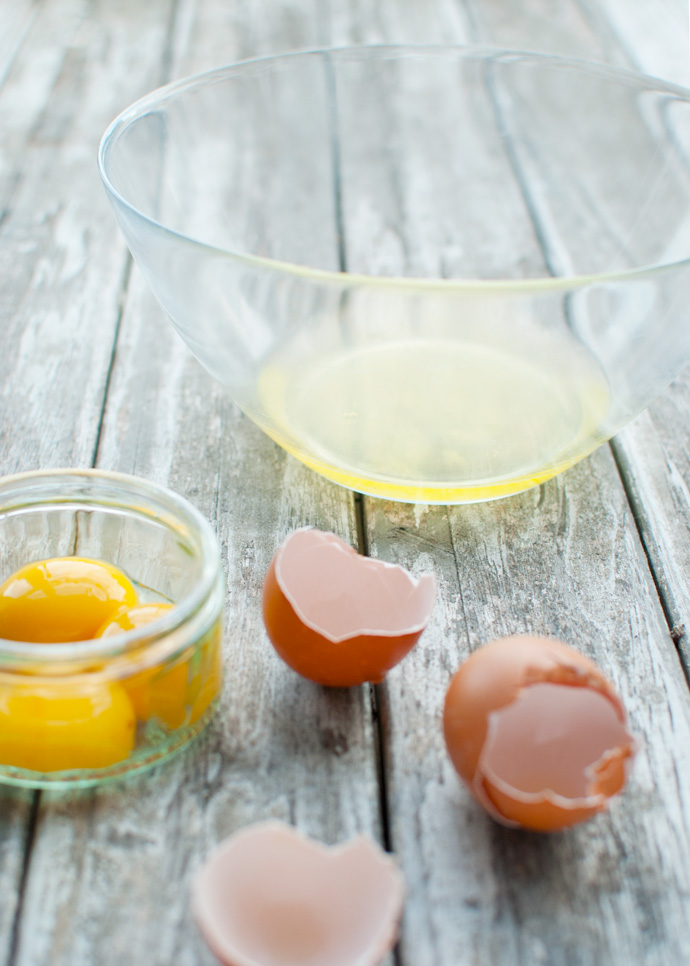 Most home-bakers are familiar with making a French meringue. To make French meringue, egg whites are beaten until they hold soft peaks, after which sugar is added and the meringue is further whipped to glossy, stiff peaks. As this method doesn’t require any cooking, French meringue is an uncooked meringue. Swiss meringue, on the other hand, is a cooked meringue. Does that mean this meringue is a bit harder to make? Well, yeah. But it’s still pretty easy…
Most home-bakers are familiar with making a French meringue. To make French meringue, egg whites are beaten until they hold soft peaks, after which sugar is added and the meringue is further whipped to glossy, stiff peaks. As this method doesn’t require any cooking, French meringue is an uncooked meringue. Swiss meringue, on the other hand, is a cooked meringue. Does that mean this meringue is a bit harder to make? Well, yeah. But it’s still pretty easy…
To make a Swiss meringue, you’ll need the same ingredients you need to make a French meringue: egg whites and granulated sugar. If you want to, you can also add some vanilla extract or vanilla paste (like I did), but it’s totally optional. As I explained in my post on Swiss Buttercream, the amount of sugar used to make Swiss meringue varies from 30g to 50g (or 7 teaspoons to 4 tablespoons) per egg white.
But what kind of egg whites am I talking about here?
Of course, egg whites come in a variety of different sizes, so it’s best to measure your egg whites by volume or weight. Traditionally, in baking, one egg white is said to weigh 33g. This means that one egg white is about 33ml, or just over 2 tablespoons, in volume. Luckily, we don’t have to be obnoxiously exact about it, but keep this in mind when you decide to use either extremely tiny or frighteningly huge eggs, because the egg white to sugar ratio largely determines the volume, strength and density of the finished meringue.
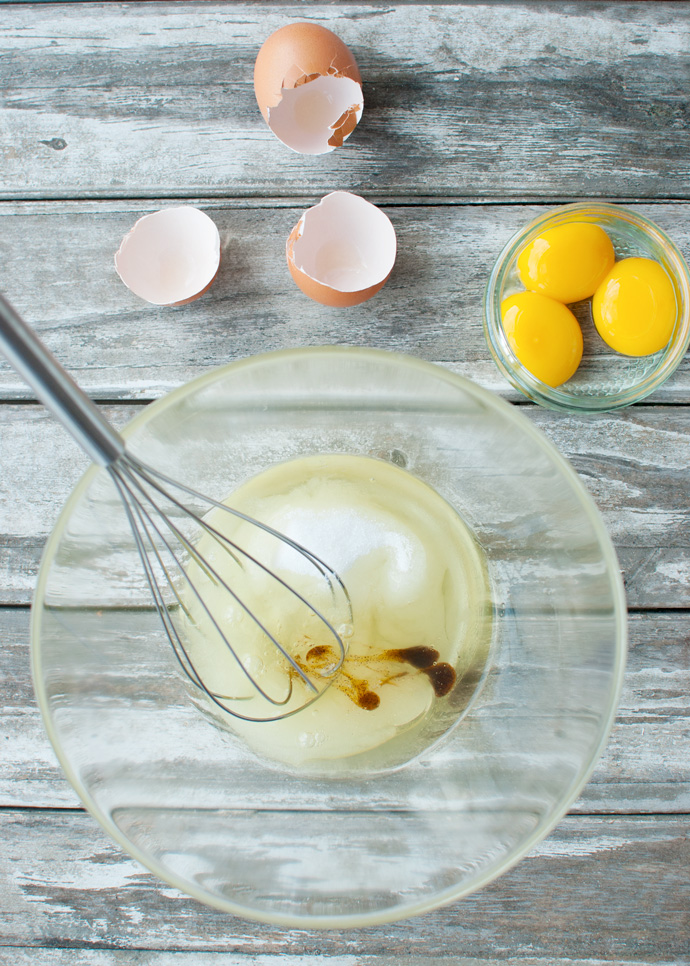 So how does that work? And remember: this goes for all meringues! French, Italian and Swiss!
So how does that work? And remember: this goes for all meringues! French, Italian and Swiss!
As you know, egg whites are basically a liquid. Sure, they’re slimy, but still a liquid, right? A meringue is made by beating air into egg whites. The liquid egg whites spread out to form thin bubble walls, trapping the air and thus creating a big mass of bubbles. As you may know, beaten egg whites (without sugar) are not very stable; they tend to lose volume and if you try to make it in advance, you may end up with a soupy bowl of bubbles. However, when you add sugar, the meringue suddenly becomes more stable. You see, when sugar is added to the liquid egg whites, it dissolves, forming a thick, syrupy liquid with the egg whites. This thick, sugar-egg white syrup makes for stronger bubble walls, which means that the resulting meringue is less likely to lose volume or start leaking. Aka: sugar means stability when it comes to meringues.
But still, how much sugar should you use?
In general, a higher sugar content means that the finished meringue will be denser and less voluminous. Plus, the larger the quantity of sugar, the more flexible the meringue’s bubble walls are and the harder it is to beat the meringue to the point where it becomes dry and yucky. In other words, a meringue with a higher sugar content is harder to mess up! Also, if you want to bake the meringue, the more sugar you add, the crispier the finished meringue kisses or cookies will be.
Consequently, a lower sugar content means that the resulting meringue is lighter, has more volume and is therefore easier to incorporate into batters. It is also a bit easier to over beat, though. So be careful!
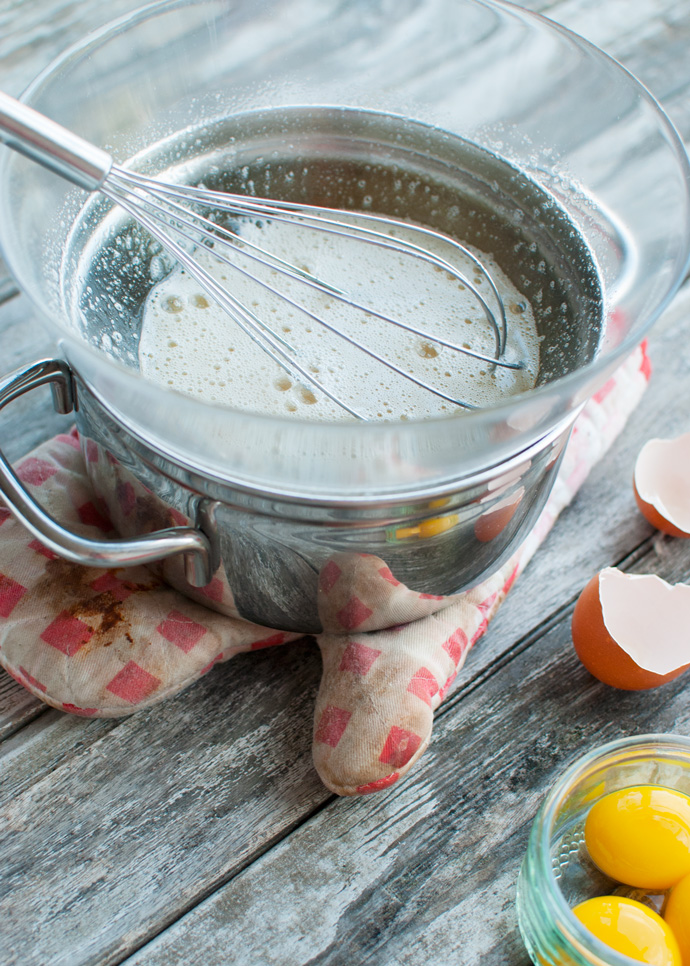 But let’s get to the point. How do you make a Swiss meringue and what is so special about it, compared to the other types of meringue?
But let’s get to the point. How do you make a Swiss meringue and what is so special about it, compared to the other types of meringue?
Well, like I said, Swiss meringue is a cooked meringue. Instead of just beating together egg whites and sugar, egg whites and sugar are whisked together, then heated over a pan of simmering water until the sugar has dissolved. In other words, when you’re making a Swiss meringue, you actually start by making an egg white-sugar syrup. Sound deeeelish, right? Well, not really. But it gets better…
Once the sugar has dissolved, you can either take the mixture off the heat and start a-whipping, or you can continue heating and gently whisking the mixture until it reaches a temperature of about 71°C/160°F. You can use a sugar thermometer or a multimeter to make sure the mixture reaches the desired temperature. By bringing the mixture up to such a relatively high temperature, you’re pasteurizing the egg whites, killing any salmonella bacteria that may be present. Not that I’m usually worried about salmonella, but hey: it’s an option!
And we like options…
Bear in mind, though, that if you do decide to crank the heat up and pasteurize the meringue mixture, you really want to make sure that you’ve added the sugar to the egg whites. You see, the sugar protects the proteins in the egg whites from the heat, preventing them from turning into scrambled eggs. So don’t try heating just the egg whites!
Aaaanyway, whether you decide to pasteurize or not, once the syrupy mixture is taken off the heat you should start whipping right away. Whip, whip, whip until the meringue holds soft, medium or stiff peaks (whatever you need) and feels cool when you dip your finger in it. If you want to add vanilla or other flavorings (such as salt), add it at the very end, right after you’ve whipped the meringue to glossy perfection.
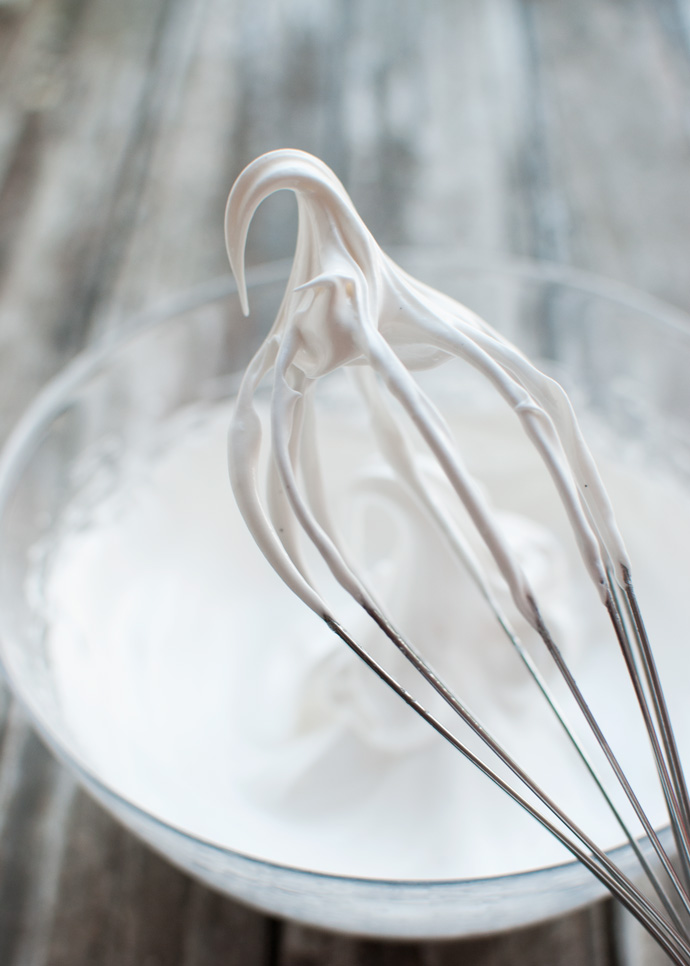 Because of its preparation method, Swiss meringue is a lot denser and less voluminous than the French and Italian types of meringue. For a Swiss meringue, the sugar is added to the egg whites very early on; before any air has been beaten into the egg whites. Consequently, the sugar and egg whites form a very thick syrupy substance that is less willing to spread out into thin bubble walls, which not only makes it harder to whip air into the meringue, it also reduces the meringue’s ultimate volume.
Because of its preparation method, Swiss meringue is a lot denser and less voluminous than the French and Italian types of meringue. For a Swiss meringue, the sugar is added to the egg whites very early on; before any air has been beaten into the egg whites. Consequently, the sugar and egg whites form a very thick syrupy substance that is less willing to spread out into thin bubble walls, which not only makes it harder to whip air into the meringue, it also reduces the meringue’s ultimate volume.
In other words: Swiss meringue is denser than French and Italian meringues. However, it is also a lot glossier, with a thick, marshmallowy texture. Like a down duvet or a Candyland cloud, or something… It is also very stable and you can make it a day in advance. Just keep it covered in the fridge; it won’t start weeping or leaking. It won’t collapse either. Because of this, I think Swiss meringue is the perfect meringue to top pies or desserts with!
Besides, this is the only – the ONLY – meringue that is completely safe to serve to pregnant women, small kiddo’s, old folks and friends or guest with compromised immune systems! Well, it won’t be if you don’t take the time to pasteurize the meringue mixture, but if you do, it’s completely safe! Bring it up to 71°C/160°F and you’re golden. Easy, fast and no risk of salmonella infection… So top your pies with this stuff. Use it to lighten up a dessert. Add some butter to make the most delicious buttercream. Turn it into kisses (it won’t bead, weep or leek!) or eat it with a spoon. It’s 100% safe to eat.
Oh, and try it when it still a bit warm, right after you made it! Love…
Click here to sign up to my mailing list.
Click here to follow me on Instagram.
- 95g (or ⅓ cup + 1 tablespoon) egg whites (about 3 egg whites)
- 110g (or ½ cup + 1 tablespoon) granulated sugar
- ½ teaspoon vanilla extract, optional
- In a medium-sized, heatproof bowl, whisk together the egg whites and sugar.
- Place the bowl over a small pan with simmering water, making sure the water doesn't touch the bowl.
- Keep whisking the mixture until the sugar has dissolved. You can easily check whether the sugar has dissolved by rubbing a bit of the mixture between your fingers; the mixture shouldn't feel grainy. If you're not worried about salmonella, you can take the mixture off the heat at this point.
- If you want to pasteurize the meringue, keep whisking until the mixture reaches a temperature of 71°C/160°F. Once the meringue reaches the desired temperature, take it off the heat.
- Using a hand held or a stand mixer, beat the warm mixture until the meringue holds the desired peak (soft, medium or stiff) and has cooled to room temperature.
- Use the meringue to pipe meringue kisses, cookies or nests, spoon it on top of a pie or cake or use it as a filling.
- As with all meringues, it is best made just before use, but you can also make this meringue a day in advance and keep it in an airtight container in the fridge.
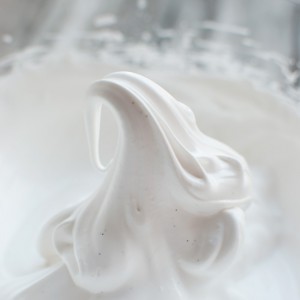
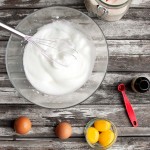
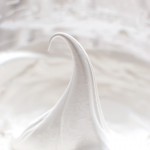
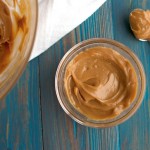
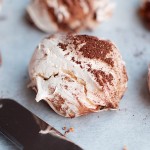



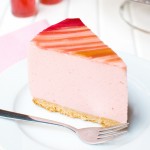
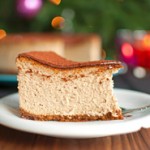
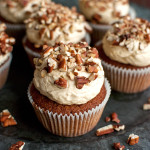
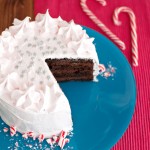
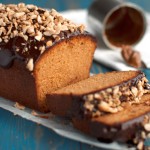


Freezing yolks: http://www.incredibleegg.org/egg-facts/eggcyclopedia/f/freezing-eggs
You’re the best! 🙂
Hi!
I just made this meringue.
I pasteurized it until 71ºC, and then sarted mixing it in my kitchen aid.
Now, is it possible to over-beat this type of meringue?
It wouldn’t form peaks, it was super super dense, not glossy and had like little holes.. maybe? Don’t know how to explain the texture!
Also, i think i’d like it sweeter!
Thank you!
Hi Alenjandra, nice to meet you! As far as I know, it’s possible to overbeat every kind of meringue! However, from what you’re telling me, I don’t think you overbeat it. You’re meringue would have reached stiff peak stage first. How long did you mix it? Mine usually takes about 10 minutes of mixing in order for it to hold stiff peaks. Did you use the whisk attachment of your kitchen aid? Or the flat beater? Because you definitely need to use the whisk for this.
The meringue is supposed to be really dense, by the way. Dense and marshmallowy… And of course if you like it a bit sweeter, feel free to add more sugar next time you make it! You can add up to 50g (or 4 tablespoons) of sugar per egg white! I usually make mine a little less sweet 😉
But yeah, what about those holes? I’ve never heard about a meringue with holes in it before! Did you take a picture of it? I’m sorry to say that I can’t imagine what might have caused it…
Hi, thanks for the response!
Well, i did use the whisk of the mixer, i mixed it for less than 10 minutes, and it never got those peaks 🙁 it was very dense and not shiny, kinda dull actually.
But i did make it again and it was niceR, not what i was expecting, i put it in a pastry bad, but the peaks didn’t hold on so good. I didn’t take pictures of the holes lol, but let’s hope i don’t get those again.
I also saved it in the frigde in airtight container and it did “sweat” it was awful.
I guess i’ll have to continue practicing!
Question – can you add the vanilla @ the beginning of whipping? I added it after and it kinda soften my meringue and then it was unable to keep the nice shape it had before adding the vanilla.
Regards,
Hi Mary! Yes, you can also add the vanilla to the bowl with the egg whites and sugar before you’ve even started whipping. That’s totally fine 🙂
Thank you for this recipe!
I calculated your egg to sugar ration. It had only 15.5% more sugar in volume!
I just made some Swiss meringue last night using the 1 to 2 ration. 80g of egg whites to 160g of sugar and almost had a heart attack when tasting it…
In retaliation, I dumped about half a cup of bitter cocoa powder in, which helped quite a bit. Then I tried to pipe it out. The mixture was so dense, I could hardly get any out through the tip. In desperation I dug out two spoons and proceeded to dig my meringue out of the piping bag and dropped blobs of it on my baking tray. It looked like little pale brown balls. So I dusted more cocoa powder for aesthetic appeal and used a for to make little peaks.
I popped the lot at 150 C, came back in 15 minutes to see that some of them have formed cracks. Oops! I then lowered the temperature to 110 C and cooked for a further 30 minutes. They came out with the peaks still in place with a slightly chewy center.
What I was most surprised was how well the meringue held up its shape after all that manhandling.
I will use your formula from now on!
Thanks for sharing Rachel! I’m so glad my post was helpful 🙂
Hi there,
I am so glad found your Site, I shall have a good look around.
I love making Mernique but never know what Merinque to use for what.
French Merinque is the easiet but just mixing the egg whites to soft peaks and then very slowly adding the Sugar , the Meringuq will become beautiful stiff and glossy.
I personaly much prefer the Swiss Merninque, I think they taste better and after baking they are nice and gooey on the inside.
I have not yet made the Italian Merninque so can not say how they * eat *
Could you maybe tell me if I can use Swiss Merinque for all recipes that ask for Merinque toppings or just pipe them like little kisses and such?
So glad that I now know how much sugar per egg white, I like my Merinques seme sweet because often they are within or with a sweet dessert.
Petra
Hi Petra, you can certainly use Swiss meringue for most other recipes that call for a meringue. You may want to adjust the sugar content, though. For example, if you want crispy meringue kisses, you need to use more sugar, as this makes the kisses crispier. Happy baking 😉
Hi. Can I made this for french macarons?
Hi Phuong, I haven’t tried it, so I can’t be sure. But it’s an interesting idea. I’m going to add it to my to-bake list 🙂
what oven temperature do you advise me to use and for how long? I was told to place the meringues on the bottom shelf and to turn off the fan !! Is this true,?
Hi Capoani, yes, turn off the fan (meringue is so light it would just blow away). If you follow the instructions in this ancient post for coffee meringues, you should be good to go! Please try not to look at the photos too much 😉
Hi Nila. I look forward to trying your Swiss Meringue. I used a slightly different recipe yesterday given to me by a friend and the result was lovely and creamy when I first made it but today it is full of tiny crystals. Is it normal for meringue to break down like this over time or did I do something to precipitate this? What is the life-span of a Swiss Meringue? I used it to fill Sweet Potato Whoopie Pies—should I have refrigerated them? Thanks!
Hi Sue, I’ve never heard of meringue breaking down into tiny crystals. That’s so weird! However, meringue always breaks down over time. French meringue breaks down very quick, while Swiss and Italian meringue are generally more stable. However, in general meringue cannot be stored for very long. 8 hours at the most in the fridge. 🙁
Hi! I just tried this recipie and made scrambled eggs. How do you keep the eggs from cooking while I bring it up to 160degrees. I wisked continuously. Did I have the water bath to hot?
Hi Christina, sorry for my last response. I’ve been a bit busy these past weeks. The water bath cannot have been too hot, so don’t worry about that. Did you combine the whites with the sugar before placing them over the hot water bath?
Hi Nila!
I’ve made quite a lot SMBC but I’m always concerned if I pasteurized my egg whites too much. Is there such a thing? :-O
I always heat up my egg white-sugar mix to 160F (sometimes even higher). How long should I keep it at 160F? Or is it pasteurized once it reaches 160F?
Thanks so much!
Hi Calee, I don’t think you can pasteurize your eggs too much, but you can certainly let your egg whites become too hot, so be careful of temperatures higher than 160F! Most bakers bring their eggs up to a temperature of 160F and as soon as the whites hit that temperature they remove them from the heat (I do this). However, some people argue that the whites need to be kept at 160F for a few minutes in order to properly kill any harmful bacteria. I guess it’s up to you… 😉
Hi Nila,
I am a new baker learning to make swiss meringue. This series is so helpful. Great work and thanks for sharing.
You’re welcome Jenny! Glad I could help 😉
In your pictures above, are those stiff peaks? I’m not sure if a Swiss meringue at stiff peak stage should have a little curl at the end or not… thank you!
Hi Diorella, I thought those curly meringue peaks would look better in the photo 😉
Yes, the curl does look pretty. 🙂 So the stiff peak stage should have the tip pointing straight up, correct?
Hi Dlorella, yes, when beaten to the stiff peak stage, the tip points straight up 😉
Thank you for this very interesting post. As I was reading, I was wondering if a `half-way` method would result in a fluffier but more stable Swiss meringue: beat egg-whites with a pinch of cream-of-tartar over hot water till frothy/soft peaks, then add superfine sugar, and continue to beat over hot water till it becomes glossy and holds peaks.
Hi Rowena, that’s an interesting idea. I wouldn’t beat the whites without the sugar over hot water, though. The sugar helps the whites endure the temperature of the steam. But beating a regular french meringue (that has been beaten to soft peak stage) to stiff peak stage over a water bath might indeed produce a fluffier, more stable meringue. 😀
hi, i recently made swiss meringue to fill a rolled caked and the meringue broke down into bubbles after a day in the fridge hence got soaked up by the cake. Is that normal? From another comments i read, it seem some people use it for piping on the cake, it’ll be odd if it’s doesn’t hold for long. Just wondering if i did something wrong.? As it came out great when I first made it.
Hi li, what a bummer! ???? Swiss meringue shouldn’t break down, but it’s not unheard of. Did you perhaps cut back on the sugar? And had the sugar properly dissolved into the whites? The sugar is what makes the meringue stable, so I’m guessing something went wrong with the sugar…
Question: Is there anyway I can safely store the swiss meringue overnight? I am making this for Christmas but didn’t know that it can only be stored for max of 8 hours. So is there any suggestions or possible tips you know to safely store it without it breaking down? Please and Thank-you.
Hi Crystal, it’s true that meringue is best right after you’ve made it. Swiss meringue should be stable enough to store overnight, but I just read a comment from another reader whose Swiss meringue collapsed when she stored it in the fridge overnight. So to be safe: make it the day you’re going to serve it.
I have taken over making meringues for my nephew while his mom is so sick with the next one. He has a lot of dietary restrictions, and this is one of his breakfast foods. I was told to do 4 egg whites, 1 cup honey, 1/4 tsp cream of tartar, and 1/4 tsp lemon juice until it reaches 170F. After beating to almost stiff peaks, fold 1/4 tsp salt and 1/2 cup vegetable puree into a 1/4 of the egg whites and then fold that into the rest. Then they’re piped into bite size and baked at 200F for 3 hours.
What effects does using honey cause? As I am not a baker in any sense, are there any tips to make this easier for me? I’m a cook. I throw what sounds good in a skillet without measuring and 95% of the time I come up with something great. But measuring volume and temperature and stiffness is a great testing of my patience.
I’m sorry NotABaker, but I’ve never used honey in meringue before, so not sure what it does or how it would affect the meringue. Sorry 🙁